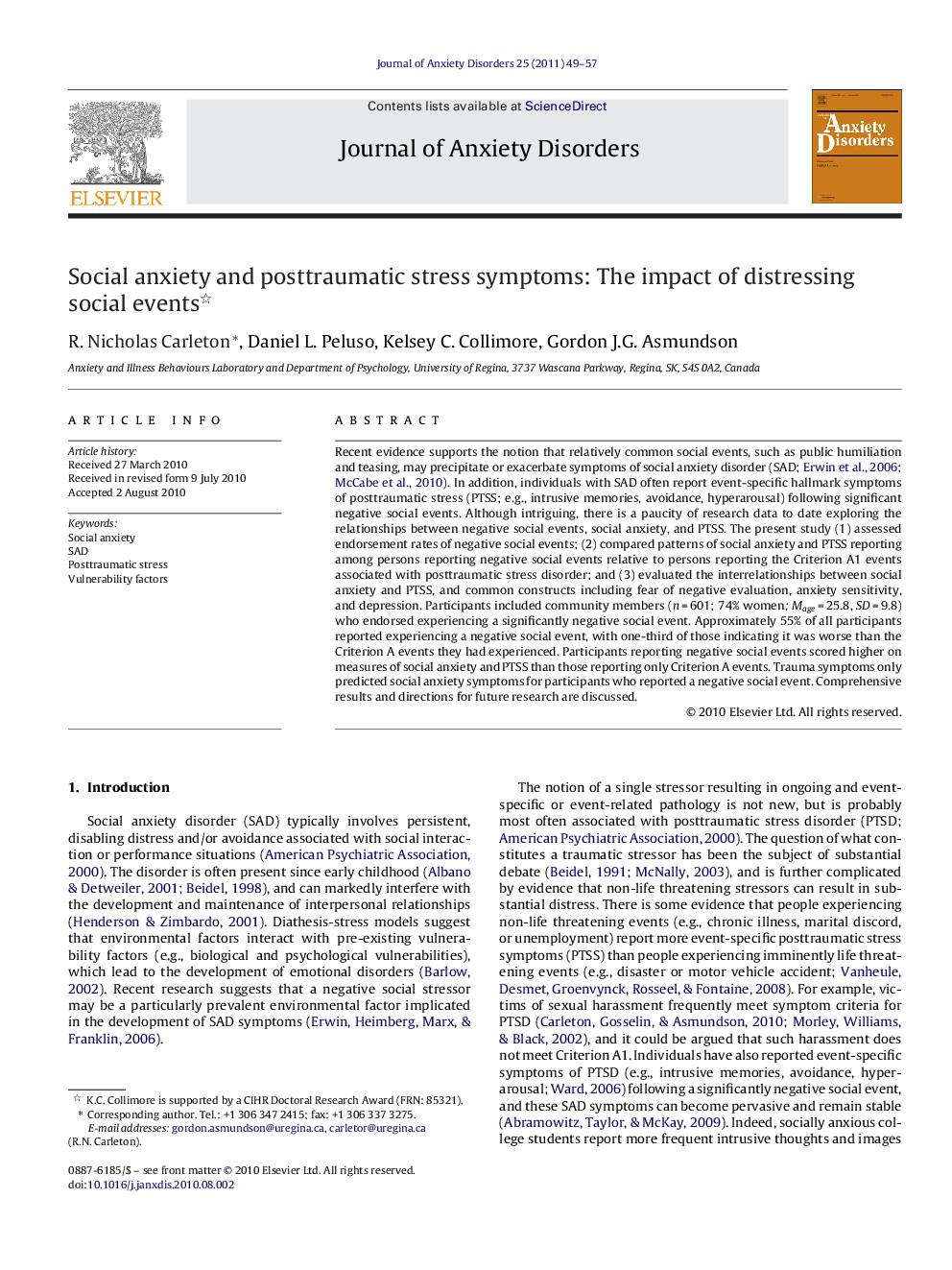| Article ID | Journal | Published Year | Pages | File Type |
|---|---|---|---|---|
| 909499 | Journal of Anxiety Disorders | 2011 | 9 Pages |
Recent evidence supports the notion that relatively common social events, such as public humiliation and teasing, may precipitate or exacerbate symptoms of social anxiety disorder (SAD; Erwin et al., 2006 and McCabe et al., 2010). In addition, individuals with SAD often report event-specific hallmark symptoms of posttraumatic stress (PTSS; e.g., intrusive memories, avoidance, hyperarousal) following significant negative social events. Although intriguing, there is a paucity of research data to date exploring the relationships between negative social events, social anxiety, and PTSS. The present study (1) assessed endorsement rates of negative social events; (2) compared patterns of social anxiety and PTSS reporting among persons reporting negative social events relative to persons reporting the Criterion A1 events associated with posttraumatic stress disorder; and (3) evaluated the interrelationships between social anxiety and PTSS, and common constructs including fear of negative evaluation, anxiety sensitivity, and depression. Participants included community members (n = 601; 74% women; Mage = 25.8, SD = 9.8) who endorsed experiencing a significantly negative social event. Approximately 55% of all participants reported experiencing a negative social event, with one-third of those indicating it was worse than the Criterion A events they had experienced. Participants reporting negative social events scored higher on measures of social anxiety and PTSS than those reporting only Criterion A events. Trauma symptoms only predicted social anxiety symptoms for participants who reported a negative social event. Comprehensive results and directions for future research are discussed.
Research highlights▶ The research reviews the relationship between socially based traumas and social anxiety. ▶ The research explores the potentially long-term effects of socially traumatic events. ▶ The research describes the frequency of social events perceived to be traumatic.
